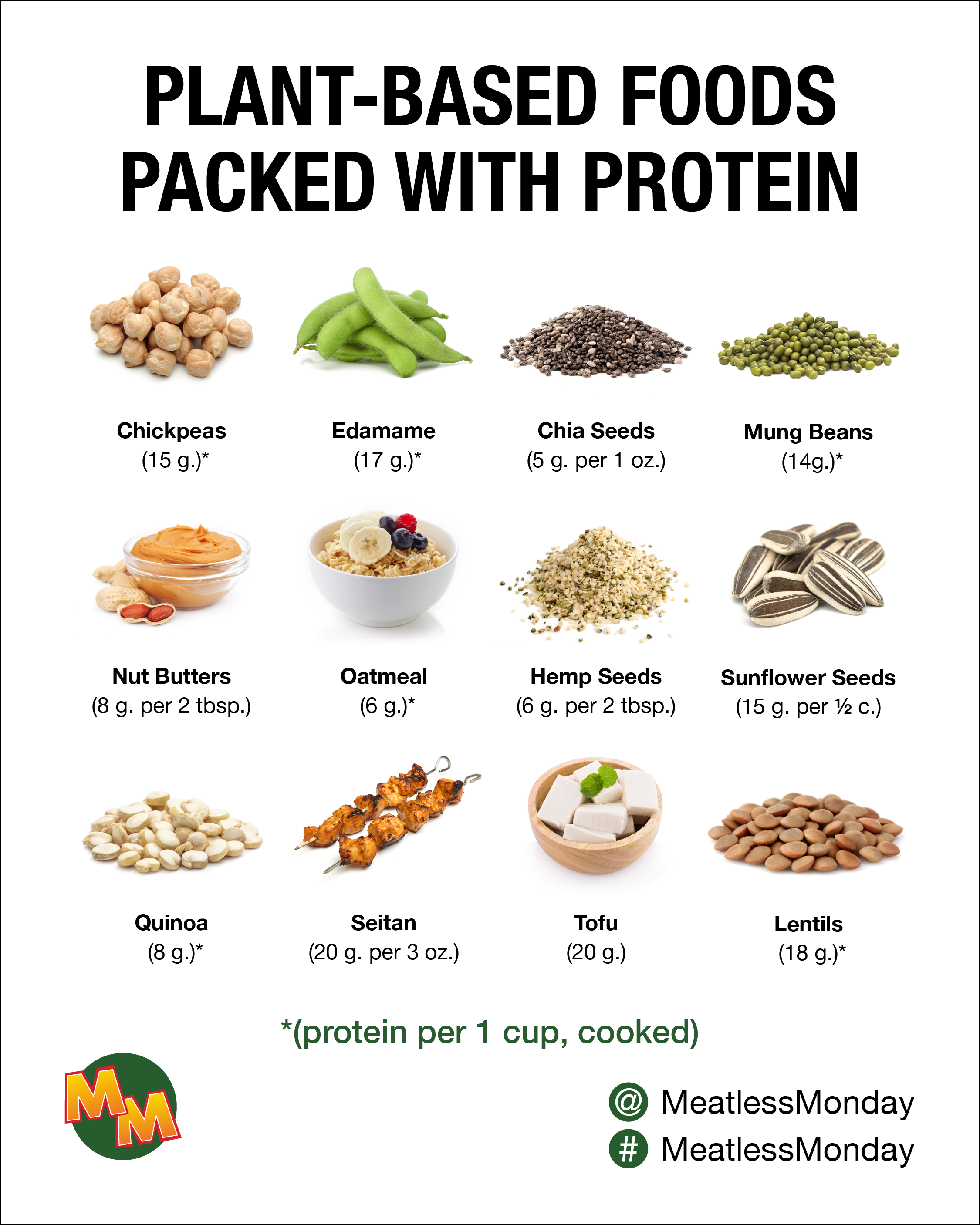What Athletes Say About Recovering on a Plant Based Beef Diet
What Athletes Say About Recovering on a Plant Based Beef Diet
Blog Article
Everything About Healthy And Balanced Food: Benefits of Embracing Plant Based Alternatives
The discussion bordering plant-based diets has gained substantial focus in recent years. Numerous individuals are exploring the potential health benefits, dietary benefits, and ecological influences related to these nutritional options. As individuals become a lot more familiar with their food's influence on wellness and sustainability, concerns develop regarding the practicalities of embracing such a lifestyle. What certain modifications can one anticipate, and how might these options reshape not only individual health and wellness but also the earth's future?
Recognizing Plant-Based Diets
Numerous individuals connect plant-based diets primarily with vegetarianism or veganism, these diets can encompass a broad range of eating patterns that prioritize whole, minimally processed plant foods. Such diet plans frequently consist of fruits, vegetables, whole grains, legumes, nuts, and seeds, while removing or restricting pet items. This flexibility permits people to customize their nutritional selections according to individual choices and dietary requirements. Some may take on a largely plant-based diet while still occasionally consuming meat or dairy, typically described as a flexitarian technique. The focus continues to be on including more plant foods, which can result in a varied array of tastes and dishes. Comprehending these different interpretations of plant-based eating is vital for appreciating its access and charm in modern food culture.
Health And Wellness Advantages of Plant-Based Foods
The health advantages of plant-based foods are significant, using a nutrient thickness benefit that supports overall wellness. Research study indicates that these foods can improve heart health and wellness and play a vital duty in effective weight administration. By integrating more plant-based alternatives, individuals may improve their nutritional options and advertise lasting health and wellness.
Nutrient Thickness Benefit
Nutrient thickness plays an essential duty in the health and wellness advantages of plant-based foods, making them an engaging selection for those seeking a balanced diet regimen. Plant-based foods, such as fruits, vegetables, legumes, nuts, and entire grains, are commonly rich in necessary vitamins, minerals, and antioxidants while being reduced in calories. This high nutrient thickness permits people to consume less calories while still meeting their nutritional requirements. In addition, these foods are packed with nutritional fiber, advertising gastrointestinal wellness and helping in weight administration. By incorporating nutrient-dense plant-based choices, customers can enhance their general wellness, sustain their body immune systems, and minimize the danger of chronic diseases. Inevitably, the nutrient thickness of plant-based foods underscores their importance in a health-conscious lifestyle.
Heart Wellness Improvement

Weight Monitoring Support
In enhancement to advertising heart health, a plant-based diet can considerably assist in weight management. This dietary method emphasizes entire foods such as fruits, vegetables, vegetables, nuts, and whole grains, which are typically lower in calories and higher in fiber compared to animal-based items. The high fiber content helps enhance satiation, reducing general calorie intake. Plant-based diet regimens are often rich in important nutrients while reduced in undesirable fats, making it less complicated to keep a healthy weight. Research study suggests that people who adopt a plant-based way of life often tend to have reduced body mass indexes (BMIs) and experience more effective weight-loss contrasted to those that consume meat-heavy diet regimens. Embracing plant-based alternatives is a tactical option for reliable weight administration.
Nutritional Worth of Plant-Based Ingredients
Plant-based active ingredients are rich in important nutrients, using a diverse selection of vitamins, minerals, and anti-oxidants that add to total wellness. A comparison of protein sources discloses that while pet products are commonly considered as superior, lots of plant-based options provide ample protein and various other useful compounds. Recognizing the dietary value of these components can aid people make informed nutritional selections.
Vital Nutrients in Plants
Nutrient-rich components discovered in plants use a varied selection of crucial vitamins and minerals that contribute considerably to overall health. These ingredients are abundant in vitamins A, C, and K, which support immune function, vision, and blood clotting, respectively. On top of that, plants offer crucial minerals such as magnesium, potassium, and calcium, crucial for heart health and wellness, muscle function, and bone strength. The visibility of fiber in plant-based foods aids digestion and advertises a healthy digestive tract microbiome. Antioxidants, located generously in vegetables and fruits, assistance combat oxidative anxiety and decrease swelling. Many plant foods are reduced in calories yet high in nutrients, making them a superb option for those seeking to keep a healthy weight while ensuring excellent nutrient intake.

Contrasting Healthy Protein Resources
Protein sources differ substantially in their dietary accounts, with plant-based active ingredients offering unique benefits. Unlike animal proteins, which typically contain hydrogenated fats and cholesterol, plant healthy proteins often tend to be lower in these undesirable parts. Legumes, nuts, seeds, and whole grains are rich in necessary amino acids, fiber, vitamins, and minerals. Lentils provide high protein web content along with significant iron and folate, while quinoa is a full healthy protein, providing all nine vital amino acids. Furthermore, plant-based proteins are typically accompanied by anti-oxidants and phytochemicals that support total health. The change to plant-based protein resources not only enhances dietary intake however likewise straightens with lasting dietary techniques, minimizing ecological impact and advertising lasting wellness advantages.
Ecological Impact of Plant-Based Consuming
As recognition of climate modification grows, numerous people are checking out lasting nutritional selections that can substantially reduce their ecological footprint. Plant-based eating has emerged as a significant factor to decreasing greenhouse gas discharges, which are mainly connected with livestock production. The farming of fruits, vegetables, grains, and legumes normally calls for less resources, such as water and land, contrasted to animal farming. Furthermore, plant-based diet regimens can result in reduced logging, as much less land is needed for grazing animals or expanding pet feed. By shifting towards plant-based options, customers can sustain biodiversity and advertise healthier ecosystems. Generally, accepting plant-based consuming not only benefits individual health and wellness but additionally stands for a crucial step toward ecological sustainability and conservation initiatives.
Conquering Common Misconceptions
While many people acknowledge the advantages of a plant-based diet plan, numerous misunderstandings commonly prevent them from fully accepting this way of living. A common idea is that plant-based diet plans lack adequate healthy protein; however, many plant resources, such as beans, nuts, and tofu, offer sufficient protein. Furthermore, some assume that this diet is costly, when actually, staples like beans, rice, and seasonal veggies can be fairly budget friendly. Another mistaken belief is that plant-based eating is overly limiting, whereas it really offers a varied range of tastes and foods. Lastly, many fret that a plant-based diet plan may cause deficiencies, yet with appropriate preparation, individuals can obtain all essential nutrients, consisting of vitamins and minerals, while delighting in a wide array of delicious meals.
Tips for Transitioning to a Plant-Based Way of life
Making the shift to a plant-based lifestyle can be an enriching experience, though it often needs some guidance to browse the preliminary modifications. First, individuals are encouraged to start gradually, integrating more fruits, vegetables, beans, and entire grains into their meals while minimizing meat and dairy usage. Dish planning is crucial; preparing an once a week menu can help reduce the adjustment and prevent final undesirable choices. Checking out brand-new dishes and cooking approaches can view also boost the experience and preserve enjoyment concerning plant-based consuming. In addition, signing up with support system or areas can supply motivation and share beneficial ideas. Ultimately, remaining educated about nourishment assurances well balanced meals, avoiding shortages while fostering a healthy, satisfying plant-based way of life.
Delicious Plant-Based Meal Ideas
Discovering scrumptious plant-based dish ideas can motivate people to welcome a much more nourishing diet. One popular alternative is a passionate quinoa salad, featuring cherry tomatoes, cucumber, and a vibrant lemon-tahini clothing. Another fave is a tasty lentil stew, loaded with carrots, celery, and fragrant herbs, excellent for a calming dinner. For breakfast, over night oats made with almond milk, chia seeds, and topped with fresh berries offer a healthy start to the day. Furthermore, a vibrant vegetable stir-fry with tofu and a variety of colorful veggies can be a fast yet satisfying dish. Velvety avocado toast on whole-grain bread, sprinkled with seasonings and seeds, provides a simple yet savory treat. These dishes display the range and splendor of plant-based consuming.

Often Asked Inquiries
Can a Plant-Based Diet Plan Give Enough Healthy Protein?
The inquiry of whether a plant-based diet can supply sufficient healthy protein prevails. Various sources, consisting of legumes, nuts, seeds, and whole grains, can satisfy healthy protein needs successfully, sustaining a well balanced and nourishing diet regimen for individuals.
Are Plant-Based Diets Ideal for Children?
The viability of plant-based diets for children relies on cautious preparation. Sufficient nutrients should be assured, including minerals, healthy proteins, and vitamins. With proper guidance, such diet plans can support healthy and balanced development and development in kids.
Just how Do I Eat Out on a Plant-Based Diet regimen?
Eating in restaurants on a plant-based diet involves looking for dining establishments with diverse menus, requesting for adjustments, and discovering vegan-friendly alternatives. Preparation ahead and connecting dietary choices can improve the eating experience while preserving dietary selections.
What Are Usual Allergens in Plant-Based Foods?
Common irritants in plant-based foods consist of soy, gluten, nuts, and seeds - Gluten Free BBQ Sauce. Individuals following a plant-based diet regimen must be mindful of these irritants and check out tags thoroughly to stay clear of adverse responses and assure safe consumption
Can Plant-Based Diets Aid With Fat Burning?
Research study shows that adopting a plant-based diet might go facilitate fat burning because of its generally reduced calorie density and higher fiber content. This mix can boost satiation, assisting individuals manage their calorie intake properly. Numerous individuals connect plant-based diet regimens mainly with vegetarianism or veganism, these diet regimens can include a wide array of eating patterns that focus on whole, minimally processed plant foods. Nutrient thickness plays a vital function in the health benefits of plant-based foods, making them an engaging choice for those seeking a well moved here balanced diet plan. Plant-based diet plans have been shown to markedly enhance heart wellness, as they typically contain elements that support cardiovascular function. In enhancement to advertising heart health and wellness, a plant-based diet can substantially aid in weight management. An usual belief is that plant-based diet regimens lack adequate protein; nonetheless, many plant resources, such as beans, nuts, and tofu, provide adequate protein.
Report this page